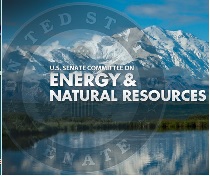New Report Calls for Increased Emphasis on Innovation and Clean Electric Power Generation
National Academies call for support of investments in energy efficiency, regional energy innovation and grid modernization
New report released as conference committee process begins to reconcile differences between energy bill
Washington, DC – (RealEstateRama) — Ranking Member of the Senate Energy and Natural Resources CommitteeMaria Cantwell (D-Wash.) welcomed the release of a new report from the National Academies of Sciences, Engineering and Medicine on innovation for clean energy.

Specifically, the report recommends that “the U.S. federal government and state governments should significantly increase their emphasis on supporting innovation in increasingly clean electric power generation technologies;” in part, by expanding research, development and commercialization of increasingly clean energy resources and technologies.
Sen. Cantwell is particularly pleased to see an emphasis on energy efficiency measures. The report recommends that all levels of government and the private sector “should take steps to remove barriers to, provide targeted support for, and place a high priority on the development and deployment of all cost-effective energy-efficiency measures.”
“If we want to continue to compete in that global economy, we must continue to improve energy productivity,” Sen. Cantwell said. “We need to continue to build on the success of the last 40 years—to cut our energy waste and continue to produce the jobs that these new renewables and energy-efficiency opportunities are creating for us.”
But in order to take full advantage of energy efficiency and cleaner energy technologies, a modern electric grid is needed. Sen. Cantwell has a long history of advocating for grid modernization, having introduced and incorporated several bills on the issue into the comprehensive, bipartisan energy bill. The report identifies several of the challenges facing our grid and electric power system, finding it “necessary to redesign business models and regulatory incentives.”
“The federal government is uniquely situated to take the broadest and longest view of the electric grid, as a platform for economic growth and diversification,” Sen. Cantwell noted. “We can’t predict where the technology will take us, but we can invest in an efficient electric grid that will make these innovations possible and give consumers more options.”
During the in-state work period in August, Sen. Cantwell participated in a regional clean energy innovation partnership workshop hosted by the University of Washington. The National Academies’ report also encourages such work, recommending that “state regulators and policy makers should implement policies designed to support innovation.” Specifically, the report recommends that the “federal government should provide funding and expertise to leverage regional opportunities and expertise in order to spur innovation.”
“The regionally-focused clean energy innovation partnerships around the country help us move faster. I like to say it’s almost as if it is ‘distributed innovation’,” Sen. Cantwell said.
The report—The Power of Change: Innovation for Development and Deployment of Increasingly Clean Electric Power Technologies—was originally requested by former Sen. Jeff Bingaman (D-N.M.) and Sen. Lisa Murkowski (R-Alaska) in 2011. The following year, Sen. Chris Coons (D-Del.) led a letter signed by 27 Senators to urge DOE to provide funding for the report.
“We can no longer ignore the reality that a cleaner energy future is a critical asset for the long-term viability of our economy and the very survival of our planet,” said Sen. Coons. “The U.S. must adopt policies to ensure we can capture these markets in the future. That’s why the National Academies of Sciences’ study on market adoption of advanced clean energy technologies released today is so important. This study conducted by an independent, non-partisan expert committee provides a thorough policy roadmap for Congress, federal agencies, states and the private sector. These recommendations provide direction to scale up the deployment of a broad range of energy efficiency and clean energy options. I am particularly encouraged that the report validates the importance of energy efficiency, regional innovation approaches and expanded Master Limited Partnership financing, among other recommendations. I want to applaud the commitment made by Chairman Chad Holliday and other members of the NAS committee in producing this critical study.”
These recommendations should inform negotiations as members of the conference committee begin work reconciling differences between the Senate and House energy bills.














